-
 Bitcoin
Bitcoin $118600
0.36% -
 Ethereum
Ethereum $3855
1.06% -
 XRP
XRP $3.195
-0.09% -
 Tether USDt
Tether USDt $1.000
-0.04% -
 BNB
BNB $844.5
6.23% -
 Solana
Solana $191.3
2.83% -
 USDC
USDC $0.9997
-0.01% -
 Dogecoin
Dogecoin $0.2376
0.10% -
 TRON
TRON $0.3242
0.83% -
 Cardano
Cardano $0.8222
0.13% -
 Hyperliquid
Hyperliquid $45.26
6.53% -
 Sui
Sui $4.200
-2.56% -
 Stellar
Stellar $0.4336
-1.24% -
 Chainlink
Chainlink $18.86
0.28% -
 Hedera
Hedera $0.2796
-1.75% -
 Bitcoin Cash
Bitcoin Cash $583.3
-1.84% -
 Avalanche
Avalanche $27.06
8.09% -
 Litecoin
Litecoin $112.3
-1.16% -
 Toncoin
Toncoin $3.353
0.58% -
 UNUS SED LEO
UNUS SED LEO $8.968
-0.11% -
 Shiba Inu
Shiba Inu $0.00001395
-0.54% -
 Ethena USDe
Ethena USDe $1.001
-0.03% -
 Uniswap
Uniswap $10.76
0.69% -
 Polkadot
Polkadot $4.175
0.26% -
 Monero
Monero $326.7
1.07% -
 Bitget Token
Bitget Token $4.665
1.61% -
 Dai
Dai $0.9998
-0.02% -
 Pepe
Pepe $0.00001271
0.32% -
 Cronos
Cronos $0.1416
2.01% -
 Aave
Aave $299.3
1.15%
Is Binance legal in the US?
Binance.US operates legally in the U.S. under strict compliance with federal and state regulations, including KYC, AML, and licensing requirements.
Jul 28, 2025 at 01:21 pm
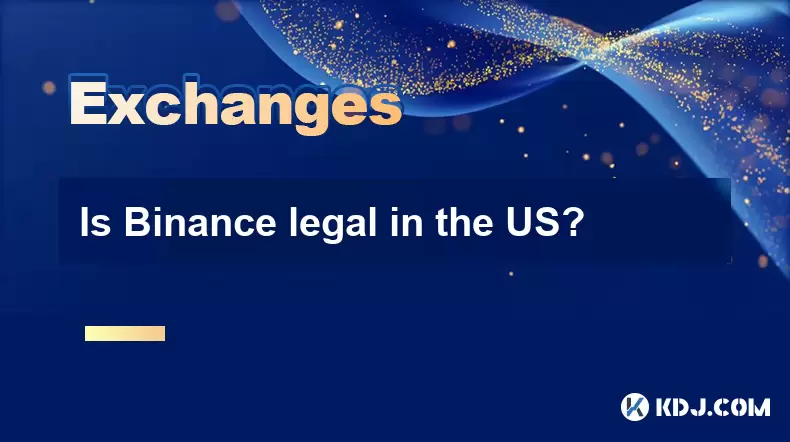
Understanding the Legal Status of Binance in the US
The question of whether Binance is legal in the US has become increasingly complex as regulatory scrutiny around cryptocurrency platforms intensifies. While Binance is a global cryptocurrency exchange, its operations within the United States are not conducted under its original brand name. Instead, Binance.US serves as the officially sanctioned platform for American users. This distinction is critical, as it reflects the regulatory requirements imposed by US financial authorities.
Binance, the global exchange, is not directly accessible to US residents due to compliance concerns. The platform has faced multiple investigations and legal actions from agencies such as the Securities and Exchange Commission (SEC) and the Commodity Futures Trading Commission (CFTC). These regulatory bodies have raised concerns over potential violations of securities laws and unregistered derivatives trading.
Regulatory Framework Affecting Cryptocurrency Exchanges
The legality of any cryptocurrency exchange in the US hinges on its adherence to federal securities laws, anti-money laundering (AML) regulations, and know your customer (KYC) requirements. Binance.US has had to structure its operations to comply with these rules, which include registering with the Financial Crimes Enforcement Network (FinCEN) and implementing robust identity verification systems.
Binance.US operates under a different corporate structure and leadership than the global Binance exchange. This separation is intended to ensure that the US-based platform complies with local laws, including restrictions on certain types of crypto assets and trading pairs. The platform must also avoid offering products that fall under the jurisdiction of the SEC, such as certain tokenized securities or derivatives contracts.
Key Legal Challenges and Past Incidents
In 2022, Binance, the global exchange, faced a major legal challenge when the U.S. Department of Justice (DOJ) and the IRS launched investigations into alleged money laundering and tax evasion. These probes were part of a broader regulatory push targeting crypto platforms that failed to meet compliance standards. Binance founder Changpeng Zhao (CZ) eventually stepped down and pleaded guilty to violating AML laws, resulting in a significant fine and leadership changes.
While Binance.US was not directly involved in these legal actions, the association with the global brand raised concerns among regulators and users. The separation between Binance and Binance.US became more pronounced following these events, with the US platform emphasizing its independence and compliance-focused operations.
How Binance.US Operates Within Legal Boundaries
To function legally in the US, Binance.US must adhere to state and federal regulations that govern financial services and digital assets. This includes obtaining money transmitter licenses in various states, complying with SEC and CFTC guidelines, and cooperating with law enforcement agencies when required.
Users of Binance.US must complete KYC verification, which involves submitting personal identification documents and proof of address. The platform also limits certain high-risk trading activities, such as margin trading and futures contracts, to comply with regulatory restrictions. These measures help Binance.US remain operational while avoiding the legal pitfalls that have affected its global counterpart.
Steps to Verify the Legality of Using Binance-US
If you're considering using Binance.US, it's essential to ensure you're engaging with the correct platform and complying with all applicable laws. Here’s how you can verify:
- Check the domain name: Ensure you're accessing Binance.US through the official website, not the global Binance platform.
- Review licensing information: Look for disclosures regarding state money transmitter licenses and FinCEN registration.
- Confirm KYC compliance: Make sure you’ve completed the identity verification process before conducting any transactions.
- Review available products: Ensure that the trading pairs and financial instruments offered are compliant with US laws.
- Monitor regulatory updates: Stay informed about any legal changes or enforcement actions that could affect the platform.
FAQs
Q: Can I access the global Binance platform from the US?
A: While technically possible through virtual private networks (VPNs), doing so violates Binance’s terms of service and may breach US regulatory laws. Users risk account suspension and legal consequences.
Q: Is Binance.US regulated by the SEC?
A: Binance.US is not directly regulated by the SEC, but it must comply with federal securities laws. The platform avoids offering products that would require SEC registration, such as certain tokenized assets.
Q: What happens if I use Binance instead of Binance.US as a US resident?
A: Using the global Binance platform may expose you to legal risks and compliance violations. Additionally, your account may be flagged or suspended if detected.
Q: Are my funds safe on Binance.US?
A: While Binance.US follows regulatory protocols, no exchange is completely risk-free. Users should consider using cold storage for long-term holdings and enable two-factor authentication for added security.
Disclaimer:info@kdj.com
The information provided is not trading advice. kdj.com does not assume any responsibility for any investments made based on the information provided in this article. Cryptocurrencies are highly volatile and it is highly recommended that you invest with caution after thorough research!
If you believe that the content used on this website infringes your copyright, please contact us immediately (info@kdj.com) and we will delete it promptly.
- Pepe Dollar vs. Bitcoin HYPER: The Crypto Supercycle Meme Showdown
- 2025-07-29 01:10:12
- BlockDAG, BNB, DOGE: The New York Minute on 2025's Crypto Frontrunners
- 2025-07-29 01:50:12
- AVAX, Solana, and the AI Token Surge: What's Hot and What's Not
- 2025-07-29 01:50:12
- XRP Price Surge Potential: Chart Analysis and What's Next
- 2025-07-29 01:55:48
- Crypto Investments, Dogecoin Substitutes, and Wealthy Returns: Navigating the Meme Coin Mania and Beyond
- 2025-07-29 00:30:13
- Iron Age Treasures: Coins and Brooches in the Test Valley
- 2025-07-29 01:55:48
Related knowledge
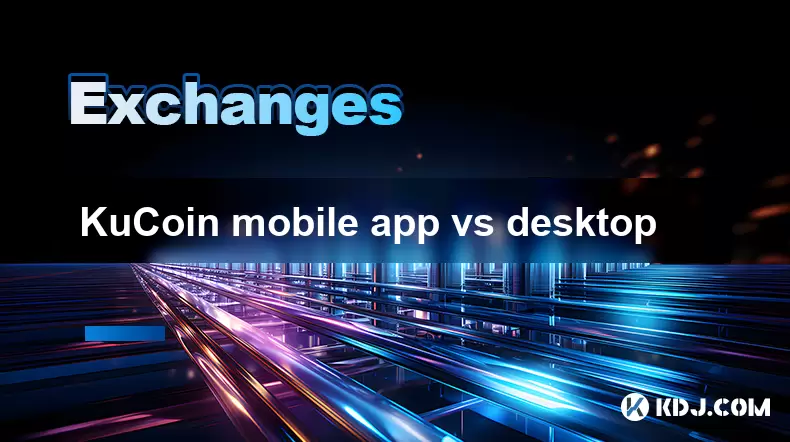
KuCoin mobile app vs desktop
Jul 19,2025 at 08:35am
Overview of KuCoin Mobile App and Desktop PlatformThe KuCoin ecosystem offers both a mobile app and a desktop platform, each designed to cater to diff...
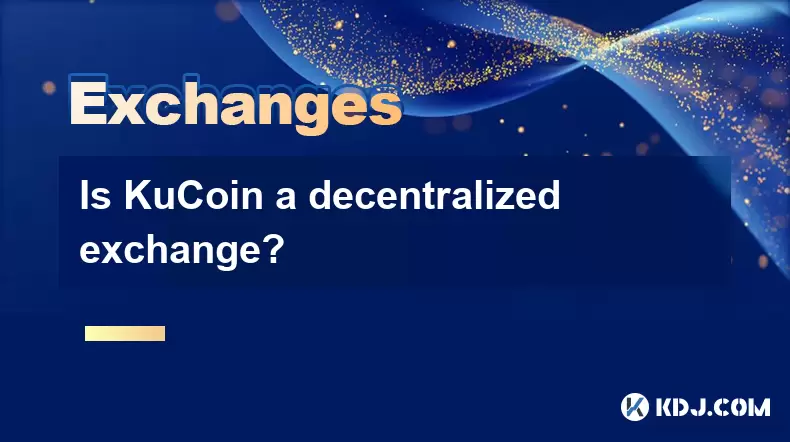
Is KuCoin a decentralized exchange?
Jul 18,2025 at 03:15pm
Understanding Decentralized Exchanges (DEXs)To determine whether KuCoin is a decentralized exchange, it's essential to first understand what defines a...
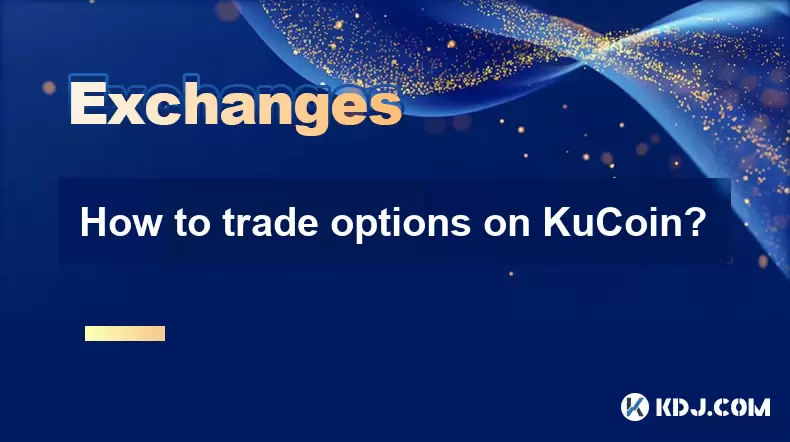
How to trade options on KuCoin?
Jul 19,2025 at 03:42am
Understanding Options Trading on KuCoinOptions trading on KuCoin allows users to speculate on the future price movements of cryptocurrencies without o...

What are KuCoin trading password rules?
Jul 20,2025 at 07:56am
Understanding the Purpose of a Trading Password on KuCoinOn KuCoin, a trading password serves as an additional layer of security beyond the standard l...
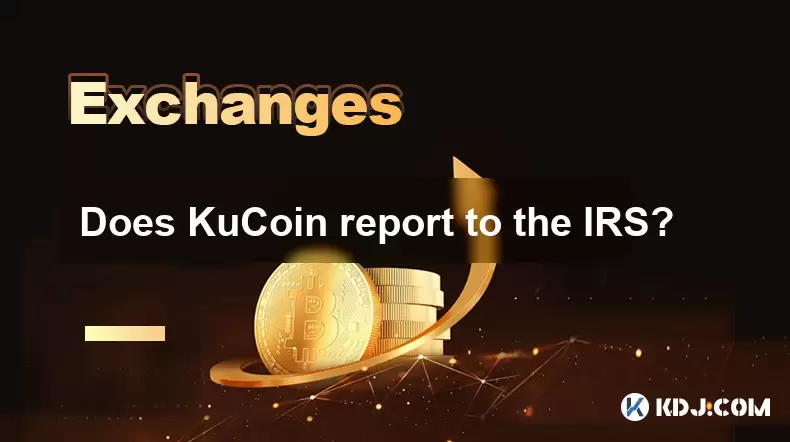
Does KuCoin report to the IRS?
Jul 27,2025 at 05:01am
Understanding the Reporting Obligations of KuCoinCryptocurrency exchanges are increasingly under scrutiny from global tax authorities, and KuCoin is n...

Who is the CEO of KuCoin?
Jul 20,2025 at 09:35am
Background of KuCoinKuCoin is one of the largest cryptocurrency exchanges globally, known for its diverse range of trading pairs and user-friendly int...

KuCoin mobile app vs desktop
Jul 19,2025 at 08:35am
Overview of KuCoin Mobile App and Desktop PlatformThe KuCoin ecosystem offers both a mobile app and a desktop platform, each designed to cater to diff...

Is KuCoin a decentralized exchange?
Jul 18,2025 at 03:15pm
Understanding Decentralized Exchanges (DEXs)To determine whether KuCoin is a decentralized exchange, it's essential to first understand what defines a...

How to trade options on KuCoin?
Jul 19,2025 at 03:42am
Understanding Options Trading on KuCoinOptions trading on KuCoin allows users to speculate on the future price movements of cryptocurrencies without o...

What are KuCoin trading password rules?
Jul 20,2025 at 07:56am
Understanding the Purpose of a Trading Password on KuCoinOn KuCoin, a trading password serves as an additional layer of security beyond the standard l...

Does KuCoin report to the IRS?
Jul 27,2025 at 05:01am
Understanding the Reporting Obligations of KuCoinCryptocurrency exchanges are increasingly under scrutiny from global tax authorities, and KuCoin is n...

Who is the CEO of KuCoin?
Jul 20,2025 at 09:35am
Background of KuCoinKuCoin is one of the largest cryptocurrency exchanges globally, known for its diverse range of trading pairs and user-friendly int...
See all articles

























































































